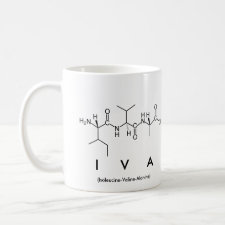
Authors: Piletska EV, Guerreiro AR, Romero-Guerra M, Chianella I, Turner APF, Piletsky SA
Article Title: Design of molecular imprinted polymers compatible with aqueous environment.
Publication date: 2008
Journal: Analytica Chimica Acta
Volume: 607
Issue: (1)
Page numbers: 54-60.
DOI: 10.1016/j.aca.2007.11.019
Alternative URL: http://www.sciencedirect.com/science/article/B6TF4-4R5HNMS-3/2/a440aeb564fe1df7347a56dece1a8c8b
Abstract: The main problem of poor water compatibility of molecularly imprinted polymers (MIPs) was addressed in examples describing design of synthetic receptors with high affinity for drugs of abuse. An extensive potentiometric titration of 10 popular functional monomers and corresponding imprinted and Blank polymers was conducted in order to evaluate the subtleties of functional groups ionisation under aqueous conditions. It was found that polymers prepared using 2-trifluoromethacrylic acid (TFMAA) in combination with toluene as porogen possess superior properties which make them suitable for effective template recognition in water. The potential impact of phase separation during polymerisation on formation of high quality imprints has been discussed. Three drugs of abuse such as cocaine, deoxyephedrine and methadone were used as template models in polymer preparation for the practical validation of obtained results. The polymer testing showed that synthesized molecularly imprinted polymers have high affinity and selectivity for corresponding templates in aqueous environment, with imprinting factors of 2.6 for cocaine and 1.4 for methadone and deoxyephedrine. Corresponding Blank polymers were unable to differentiate between analytes, suggesting that imprinting phenomenon was responsible for the recognition properties
Author keywords: Potentiometric titration, Cocaine, Deoxyephedrine, Methadone, molecular imprinting



Join the Society for Molecular Imprinting

New items RSS feed
Sign-up for e-mail updates:
Choose between receiving an occasional newsletter or more frequent e-mail alerts.
Click here to go to the sign-up page.
Is your name elemental or peptidic? Enter your name and find out by clicking either of the buttons below!
Other products you may like:
 MIPdatabase
MIPdatabase









